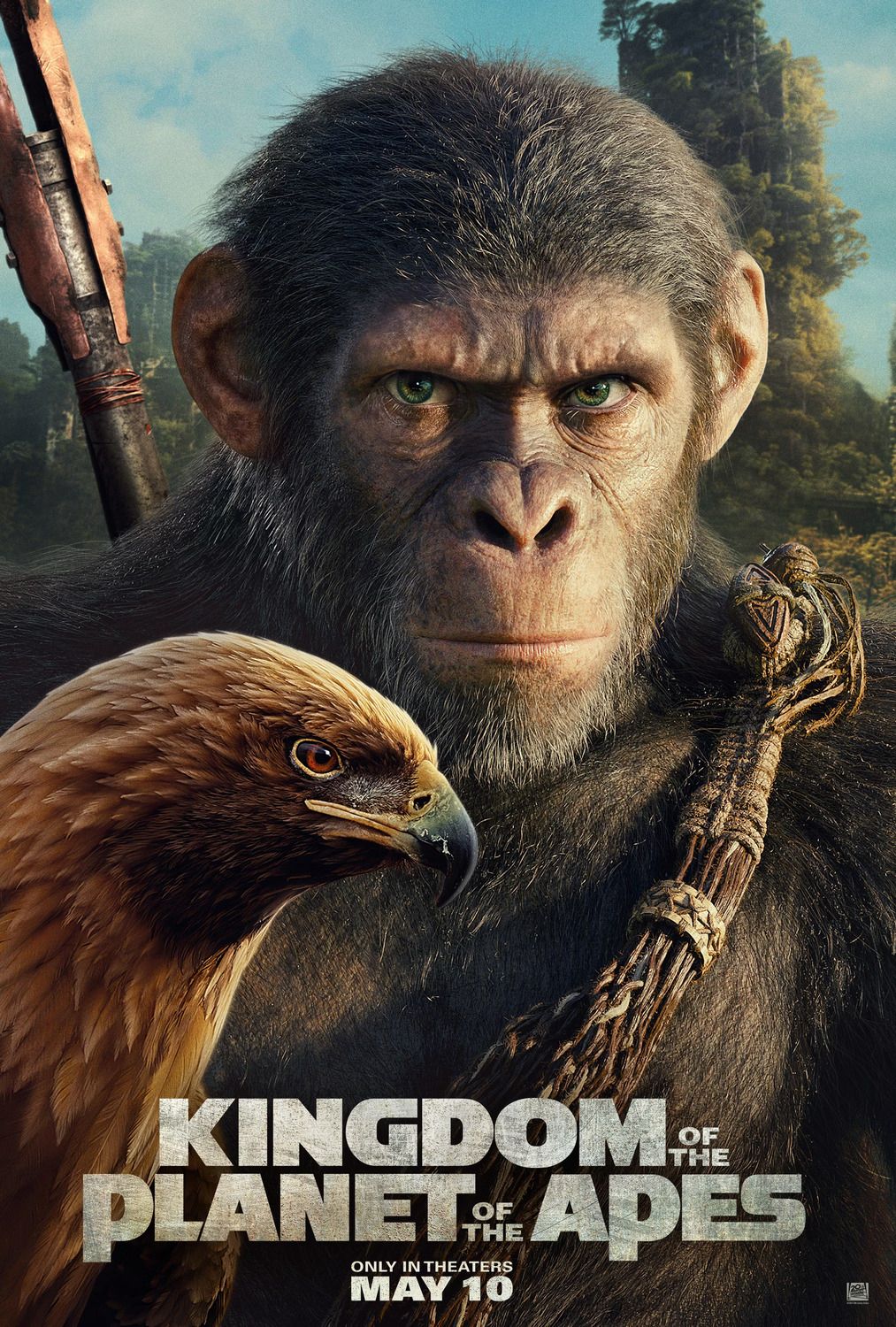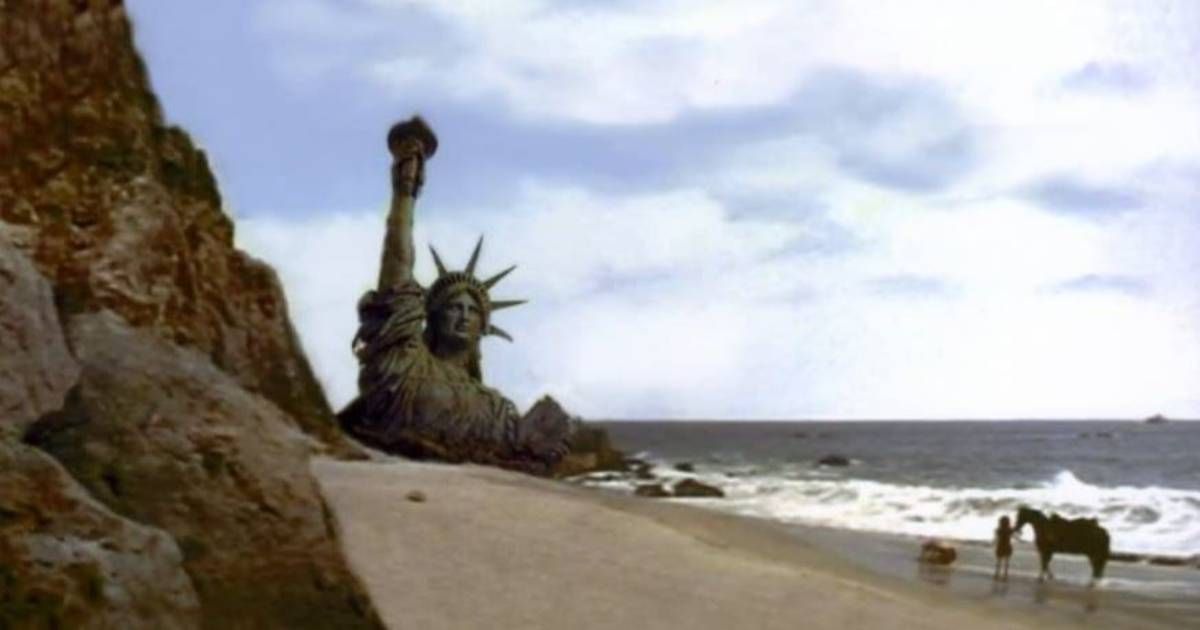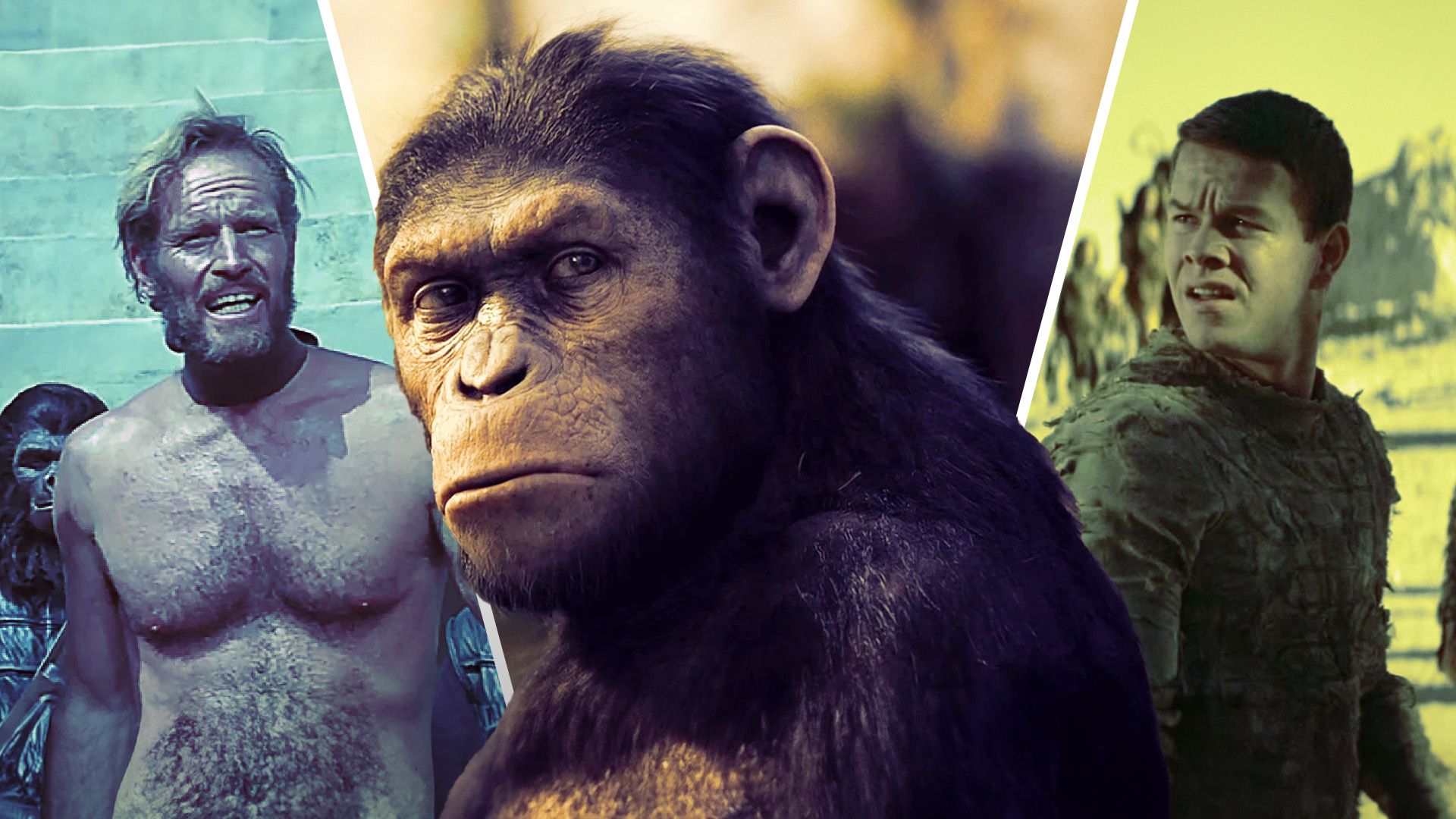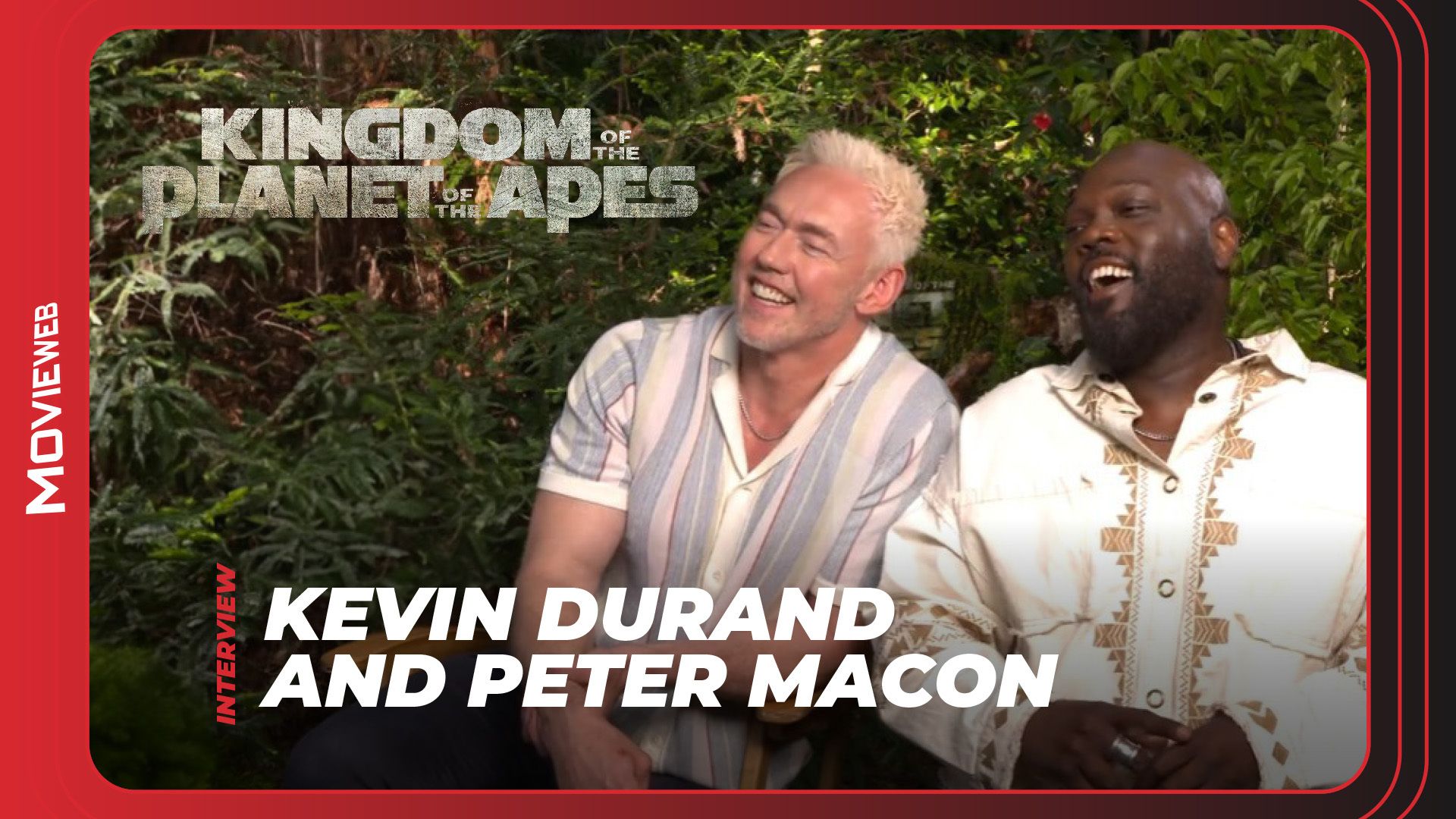[ad_1]
Summary
- Fantastic VFX and motion capture performances bring the Apes saga to a whole new level of realism.
- A fresh take on the franchise both continues its mythology and also sets up the foundations for a gripping study of civilization, violence, and the human condition.
- Long runtime and slow start aside,
Kingdom of the Planet of the Apes
is almost exactly what we want from a summer blockbuster.
Planet of the Apes was one of the first major sci-fi franchises. The original was a groundbreaking film, and it soon launched a five-film series and a television spin-off, and was one of the first merchandised films. It would be 28 years between the release of 1973’s Battle for the Planet of the Apes and Tim Burton’s disappointing 2001 reimagining. After over three decades on ice and a big-budget remake failing to capture audience attention, it seemed to many like this franchise was a relic of the past.
This made the box office and critical success of 2011’s Rise of the Planet of the Apes a massive surprise. What seemed like another attempt to cash in on a piece of IP with a grounded realistic prequel turned out to be an incredibly moving story that reflected how people’s perceptions have changed. Thanks to a combination of an incredible motion capture performance by Andy Serkis and the hard work of VFX artists at Weta Digital, Rise of the Planet of the Apes brought the franchise into the 21st century. Its two sequels, 2014’s Dawn of the Planet of the Apes and 2017’s War for the Planet of the Apes, somehow did the impossible, topping the first film and creating a great trilogy.
That certainly put a lot of pressure on Kingdom of the Planet of the Apes. When it was first announced, there were fears that the studio would milk the franchise for all its worth after an excellent ending for what is now known as The Caesar trilogy. The absence of Caesar actor Andy Serkis only compounded fears that a fourth film would sully the reputation of the previous trilogy. Thankfully, under the direction of Wes Ball and screenwriter Josh Friedman, Kingdom of the Planet of the Apes not only builds off the foundation laid forth by the Caesar trilogy but also blazes an exciting new path that moves the franchise in directions that nobody has truly grappled with in a new first installment in an exciting new trilogy.
Full Blown Planet of the Apes

Kingdom of the Planet of the Apes
- Release Date
- May 10, 2024
- Studio
- Disney Studios Australia, Twentieth Century Fox
- Tagline
- No One Can Stop the Reign
- Incredible special effects and motion capture performances make the fantasy real.
- A very thoughtful, exciting study of civilzation with excellent characters
- Kevin Durand and Peter Macon are especially fantastic.
- The film is too long, with a slow opening.
Kingdom of the Planet of the Apestakes place 300 years after the death of Caesar in War for the Planet of the Apes. Ape civilizations have emerged while humans have regressed into a feral, primitive state. The story follows Noa (Owen Teague), a young chimpanzee who, after an encounter with a mysterious human woman named Mae (Freya Allen), sees his village attacked by the troops of ape king Proximus Caesar (Kevin Durand).
Proximus has twisted the words of Caesar to create a new kingdom made up of ape colonies he has conquered while looking to attain human technology to make himself stronger. Noa, alongside Mae and an orangutan named Raka (Peter Macon), a member of an order who looks to follow the original teachings of Caesar, goes to save Noa’s family from Proximus’ clutches while also uncovering hidden truths about their world. At the same time, Mae guards her secret that could change the planet forever.
With Rise of the Planet of the Apes being the birth of a revolution, Dawn of the Planet of the Apes being a political war movie, and War for the Planet of the Apes having a lot in common with prison escape movies, Kingdom of the Planet of the Apes is a classic hero’s journey. This fourth film has been compared to A New Hope, and that comparison is certainly appropriate as, more so than any other film in the series, this is a mythic quest. It involves a young individual leaving the safety of their home, encountering a wise old figure, and gaining new companions while also realizing the world they knew is not what they thought, and are forever changed by it.
Great Caesar’s Ghost
Despite Caesar’s death in the previous film, his presence looms over this movie considerably. Whereas the last three films were about the life story of Caesar, seeing the rise and eventual death of the ape that would change the world, Kingdom of the Planet of the Apes treats him like a biblical figure. He is now the stuff of myth and legend. While some apes like Raka follow his teachings closely as a sort of religious order, others, like Proximus, have twisted his words and teachings to suit his own goals.
Much like how Julius Caesar’s name eventually morphed into a title, so has the ape Caesar’s name, with Proximus using the great ape leader’s words to spread his power and make himself a deity to other apes. This push and pull between Raka following the old text and Proximus twisting the meaning calls to mind various religious organizations and gives the film the feeling of a biblical epic.
Kingdom of the Planet of the Apes asks what happens to ape civilization when Caesar is gone, as there is no ape who grew up alongside humans to broker peace. A second question follows, and it’s one that appears to be the building block for this new planned trilogy of films: what happens after The Planet of the Apes? Not in the sense of a literal sequel like blowing up the Earth, as seen in Beneath the Planet of the Apes, but what happens when the apes win and dominate the planet? Is there peace, or will apes make the same mistakes as various human civilizations? Can humans and apes share the world, given all their history? With these new ideas in play, the franchise, like humanity and apes, must now evolve.

Planet of the Apes: Facts you Didn’t Know About the Franchise
Planet of the Apes has spawned many films throughout its history. Here we see fun facts that have flown under the radar.
Peter Macon and Kevin Durand as Raka and Proximus
Peter Macon steals the show as Raka. The wise mentor figure to Noa also serves as a great character to explain the prior films in the franchise for an audience who might be coming into this movie for their first film. He also gets some incredible laugh-out-loud moments that certainly bring a sense of humor to the proceedings.
Kevin Durand, as Proximus Caesar, is a terrifying villain. Despite not appearing until late in the film, his presence is felt throughout, and he makes the most of his screen time as a showy king, clamoring for the spotlight while also exploiting those beneath him so that he can gain power. He looks to harness human technology that makes him akin to an evil(er) version of King Louie from The Jungle Book, but instead of man’s red fire, he wants guns and tanks. Between this and Abigail, Durand is having a great year and getting the attention he has often been overlooked for.

Here’s What Every Planet of the Apes Movie Made at the Box Office
The Planet of the Apes series has had major ups and downs, but over the years it has become one of the highest-grossing sci-fi franchises in history.
The Highs and Lows of Starting a New Franchise
Kingdom of the Planet of the Apes‘ biggest struggle to overcome is its runtime. At two hours and 25 minutes, it is the longest entry in the franchise. The movie uses this runtime to explore a wide variety of themes and lays breadcrumbs for the sequels in bold, fresh ways that show this series, which, after all these years, still has plenty of untapped potential. While it lays the groundwork for future films, it’s hard to argue that the movie doesn’t start to feel its runtime, especially in its first third.
Another stumbling block it encounters is with its two main characters, Noe and Mae. For the first half, Noa feels a little ill-defined and doesn’t really come into his own until he encounters Raka and Mae. Mae, on the other hand, is keeping both Noa and, by extension, the audience at a distance, so it feels difficult to get a read on her. This is obviously by design, as she is a character shrouded in mystery. She is meant to keep the audience guessing.
Luckily, both characters find their footing in the second act, and by the time the credits roll, they are both in a fascinating place that sets up the next entry in the series. The movie makes it very clear that Noa is not Caesar and will be going down a different path, while Mae is a new spin on a human protagonist in these films, which makes her unpredictable. Any more details would be a spoiler, but Mae is the best example of drawing from the franchise’s past. Instead of making the obvious fan-service move, the film engages with material in a way that evolves the franchise.
Kingdom of the Planet of the Apes Expands the Franchise for Kids
In many ways, Kingdom of the Planet of the Apes is undoubtedly closer in setup to the original Planet of the Apes film than the three films preceding it. This is a movie that takes place as apes have formed their civilizations and cultures, and humans are feral and a nearly extinct species. The movie certainly has a great deal of fun playing with the iconography of the original film, from apes on horseback catching humans in nets to very obvious homages (characters on a beach, for instance).
The film’s primarily ape cast also means it has the potential to be the most appealing to younger children. This shouldn’t be surprising, as children were a big part of why the original Planet of the Apes films in the late ’60s and ’70s became such an extremely merchandisable franchise. But up until now, the 21st century entries in the franchise so far have moved to older audiences. This isn’t to say Kingdom of the Planet of the Apes is immature; in fact, the film tackles many complex themes. But the emphasis on the primate protagonist means kids can be drawn more into the movie and even absorb some of the more significant ideas at play, as long as they can deal with the film’s running time.
Welcome to the New Age of Apes
Kingdom of the Planet of the Apes is a worthy follow-up to the Caesar trilogy. Even though it might not live up to the heights of its three predecessors, that is less a knock against this film and more just the high bar the trilogy set. The first film in a trilogy always has the burden of extra exposition, and even with that weakness, this film is still very good and much better than most summer blockbusters, showing that the batting average for this series is impressively high.
Kingdom of the Planet of the Apes is thoughtful and audacious in a way that is fresh compared to other big sci-fi IPs. It feels like a miracle that they can get away with this. There are sweet scenes of characters carrying on a conversation, and thanks to the incredible VFX team at Weta, Wes Ball’s direction, and the actor’s performance, you forget that the scene is being carried out by apes. On paper, it sounds silly and should not work, but it does, incredibly well, and speaks to how powerful movies can be. The fantasy feels real.
Kingdom of the Planet of the Apes is what audiences should want from a summer blockbuster. It is bold, daring, and not afraid to pose thoughtful questions to its viewers. It both picks up on the previous films and is an excellent entry point into the franchise for newcomers. The movie works as a standalone piece, and its final moments will undoubtedly excite fans for the future and what lies in store for the heroes. Caesar’s story might be over, but a new epic chapter has begun in the Planet of the Apes franchise, and if it keeps moving at this pace, audiences could soon be looking at a rare great six-chapter series.
Kingdom of the Planet of the Apes opens in theaters on May 10, 2024.
[ad_2]
.










